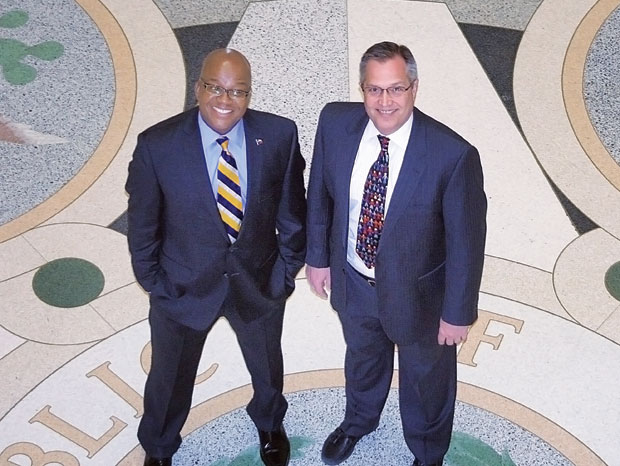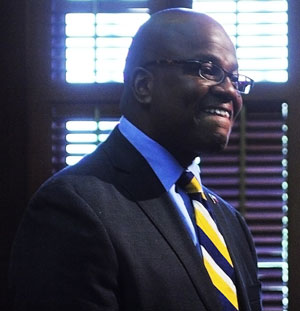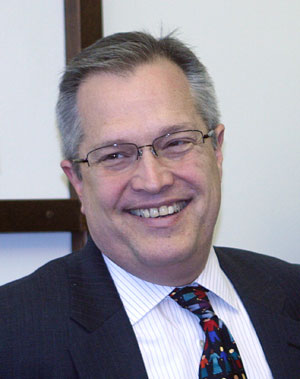Despite the Republican super majority in the Texas House, advocates hope lawmakers will be too busy with redistricting, budget to push anti-gay measures
Tammye Nash | nash@dallasvoice.com
November elections gave Republicans a 19-12 majority in the Texas Senate, while the elections plus defections by two Democrats gave the GOP a 101-49 majority in the Texas House.
In a state where the GOP platform calls for homosexuality to be recriminalized — among other anti-gay planks — such an overwhelming Republican majority would normally be really bad news for LGBT Texans.
But maybe not this year.
“We haven’t seen any anti-gay bills filed so far, and obviously, we hope we don’t see any during this session,” Chuck Smith, deputy director for Equality Texas, said during a December interview.
“If you look at an analysis of the [November election results], only four of the new Republicans taking office campaigned on social conservative issues. And none of them made those issues a top priority,” Smith said. “Most of the new people coming into the Legislature were elected based on issues of fiscal responsibility.”
Lawmakers were sworn in earlier this week and will convene the 82nd Legislature next Tuesday, Jan. 11.
Smith predicted that Texas lawmakers would spend the lion’s share of the session on two issues: passing a budget and redistricting.
The Texas Constitution requires that lawmakers, when they meet every other year, pass a LEGISLATURE balanced budget. And with a looming deficit of between $8 billion and $25 billion this year, that will be a difficult task indeed.
And, thanks to the ever-growing population of the state as recorded in the 2010 Census, Texas will be getting four new seats in Congress. That means lawmakers will also face a redistricting battle to make room for those new seats, and that’s never an easy fight.
“I believe the legislative session will be mostly consumed by the budget deficit and redistricting,” Smith said. “And there are several other contentious issues — things like immigration and reproductive rights — where numerous bills have already been prefiled. So I am not sure how much time for [lawmakers to consider] anything other than these hot-button issues.”
And that’s good for the LGBT community if it keeps at bay the kind of anti-gay measures that have been introduced in the past, like measures to prevent same-sex couples from becoming adoptive or foster parents.
But it could also keep the several pro-LGBT bills that have already been prefiled from getting consideration, too.
“I don’t think we will be as fortunate as we were in 2009 and get as many hearings [on pro-LGBT bills] as we did in 2009, when we had hearings on seven bills,” Smith said.
“I think we will have more good bills filed in 2011, but I think we will see a lot more of them get left pending,” he continued. “What bills get hearings and which ones get sent to the floor for a vote is all a function of the committee chairs and the make-up of the committees.”
Still, Smith said, he hopes that at least the issue tagged as Equality Texas’ top priority will get attention from lawmakers this year.
Former state Rep. Harryette Ehrhardt, a Dallas Democrat, introduced the first anti-bullying legislation has been on Equality Texas’LGBT-inclusive legislation — the Dignity for All Students Act — addressing bullying in Texas’ public schools back in 1997, and Houston Democrat Garnet Coleman has introduced the measure in every session since 2003. That bill was sent to the Public Education Committee in 2009, but never got a hearing.
But Smith said he hopes this year’s new crop of anti-bullying measures may have a better chance, given the attention focused on a recent string of highly-publicized incidents in which LGBT teens — or teens perceived as LGBT — committed suicide after being bullied persistently.
Legislation on bullying
Nine bills addressing bullying, including anti-LGBT bullying, have been prefiled, including, for the first time, nearly identical comprehensive measures in both legislative chambers.
“It would be accurate to say that the current Texas Education Code does not have a modern-day definition of bullying and doesn’t include adequate information on what it is and what to do when it happens,” Smith said.
Fort Worth’s Democratic senator, Wendy Davis, has filed two bills — SB 242 and SB 245 — addressing bullying. The bills define bullying as “engaging in written or verbal expression or physical conduct, including an action motivated by a perceived imbalance of power based on another student’s actual or perceived personal characteristics, behavior or beliefs” that harms a student or a student’s property, or places that student in “reasonable fear of harm” to themselves or their property.
The definition also says that bullying is behavior that is “sufficiently severe, persistent or pervasive enough” to create an “intimidating, threatening, or abusive educational environment for a student,” to interfere with a student’s education opportunities or disrupt the orderly operation of the school.
The bill also specifically includes cyberbullying, defining it as “bullying that is done using electronic communication, including electronic media,” and specifically covers bullying that occurs not only at school or during school-sponsored trips or events, but also behavior occurring away from school and school-sponsored events.
SB 242 also requires school districts to adopt policies prohibiting bullying and to prohibit retaliation against anyone reporting a bullying incident, as well as requiring school districts to develop strategies and training for faculty and staff on dealing with bullying.
SB 245 would amend Section 21.451(d) of the Texas Education Code to include requirements for training of educators in “preventing, identifying, responding to and reporting” incidents of bullying. It also would amend Section 39.306(a) to require an annual “statement of the number, rate and type of incidents of bullying, including cyberbullying, harassment, sexual harassment and discrimination against any student on the basis of the actual or perceived race, ethnicity, color, religion, gender, sexual orientation, gender identity and expression, national origin or disability of the alleged perpetrator or victim that occurred on each district campus.”
Both Davis’ and Strama’s bills would “do a number of things,” Smith said, aimed at correcting current shortcomings in the Texas Education Code in addressing bullying.
Rep. Mark Strama, an Austin Democrat, has filed HB 224 which is “nearly identical” to Davis’ Senate bills, but which does not include “gender identity and expression” in the section requiring collection of data of bullying incidents that occur.
“Our preferred bill is Wendy Davis’ bill in the Senate,” Smith said. “We want as much data collected as possible, and we want legislation that provides clear guidance into the future on what the school districts need to do to be the most effective in addressing bullying.
“We’d like to see [both bills] read the same way, both have those four words in there — ‘gender identity and expression,’” he added.
Six other bills addressing bullying have also already been filed, but Smith said none are as comprehensive as either Davis’ or Strama’s bills.
Rep. Ryan Guillen, D-Rio Grande City, filed HB 24, Rep. Richard Raymond, D-Laredo, introduced HB 170, both of which would also remove bullies from the general classroom and put them in a “disciplinary alternative education program.”
Smith said, however, that Equality Texas is not “just looking to make the bullies the bad guys,” and would prefer legislation that provides counseling or some other help for bullies as well as those who are bullied.
Also in the House, Rep. Carol Alvarado, D-Houston, introduced HB 130, which would create a bullying hotline.
In the Legislature’s other house, Sen. Judith Zaffirini, D-Laredo, has introduced two bills addressing bullying: SB 42 adds the word cyberbullying to existing Texas Education Code sections addressing bullying, and SB 49 would require that parents of students transferred to an disciplinary alternative education program be notified of the incidents prompting the move.
Sen. John Whitmire, D-Houston, has introduced SB 205, which would add certain requirements to the Texas Education Code’s Code of Conduct.
“All these other bills deal with just bits and pieces of the problem,” Smith noted. “None are as comprehensive as Davis’ and Strama’s bills.”
Other bills Equality Texas supports
Smith said lawmakers have again filed three bills that were “part of Equality Texas’ agenda in the 2009 session,” Smith said. But he again added that he doesn’t expect to see any positive action on them this year, either, given the partisan makeup of the Legislature and the likely focus on the budget and redistricting.
The three bills are each authored by lawmakers long considered staunch allies of the LGBT community.
Rep. Marc Veasey, D-Fort Worth, has filed HB 172 that would create a study on the effectiveness of the Texas hate crime law. Dallas Democratic Rep. Roberto Alonso has filed HB 208, which would prohibit anti-LGBT discrimination in insurance, and Rep. Rafael Anchia, another Dallas Democrat, has filed HB 415, which would allow birth certificates to be corrected so that same-sex couples who adopt could have both their names on their child’s birth certificate.
Changes within Equality Texas
Despite Smith’s prediction that budget woes and redistricting worries will keep lawmakers away from any anti-gay bills, the conservative majority in the Legislature this year could be a frightening specter for an advocacy organization that has recently undergone major changes.
The 82nd will be the first legislative session for new Executive Director Dennis Coleman, who left his position as South Central regional director of Lambda Legal last summer to replace Paul Scott as head of Equality Texas. In addition, the recession and the continuing weak economy has forced the organization to cut back on staff.
The former political director, Randall Terrell, is gone, and the staff is down to just three: Coleman, Smith and Operations Manager Allison Jones. Coleman said there are also two interns already working with the organization, “and a third will be coming on.”
Scott, during his tenure, tended to focus on fundraising and maintaining the structure and operations of Equality Texas, while Smith and Terrell put most of their efforts into lobbying and working with lawmakers. Interns and other employees were there to pick up the slack.
But Coleman said recently he firmly believes that, with the help of and active and determined board of directors, the organization can be efficient and effective.
“Up until they hired Randall Terrell, this organization had always functioned without a political director, and they did a very effective job. Plus, Randall was only here for one [legislative] session,” Coleman said. “This organization has a history of the executive director being the chief face of the lobbying effort, and I think we can go back to that and be just fine.”
Board Co-Chair Anne Wynne has experience as a lobbyist, and North Texans Jeanne Rubin and Paul Tran, on the board’s “strong and diverse” legislative committee, have the experience and dedication to “make sure we stay connected at the Capitol and when [lawmakers] go back to their home districts,” Coleman said.
“I definitely have a strong enough board, especially on the legislative side, for us not to miss a beat,” he added. “We will be able to move forward with the structure we have and feel confident in getting bills passed.”
The groundwork for passing anti-bullying bills has already been laid, Coleman said. But in the event that the organization “gets to the point on introducing new, we will consider hiring a contract lobbyist. But since the Legislature only meets every two years, the question is, do we really need a fulltime lobbyist?”
Despite the financial straits of the past two years, Coleman said that monthly donations have begun to increase again, and Equality Texas also recently received a challenge grant from The Gill Foundation “challenging us to raise $25,000 in monthly donations.”
“The board has really stepped up to the plate when it comes to fundraising, which allows the staff to focus on doing what needs to be done at the Capitol,” he said.
Coleman said Equality Texas’ leaders will, in the coming months, be looking at new ways to “beef up our field work and to bring in the cash to, say, deploy someone to work on a ballot initiative in El Paso, or something like that. Our job is to find out how we can make the largest impact with the resources we have.”
Coleman also noted that Equality Texas’ Lobby Day is set for March 7, and that this month he and his staff and board “will start reaching out the community to come to Austin to lobby that day. Stonewall Democrats will be [in Austin] for their annual retreat at the same time. We are reaching out to LULAC, to Log Cabin Republicans — we’re reaching out to everyone to come to Austin that day.
“This is an exciting time for us,” Coleman continued. “There is legislation already introduced that we really have a chance of passing this year. And the more diverse we can be in our efforts to lobby our legislators, the better chance we have.”
This article appeared in the Dallas Voice print edition January 7, 2011.
















